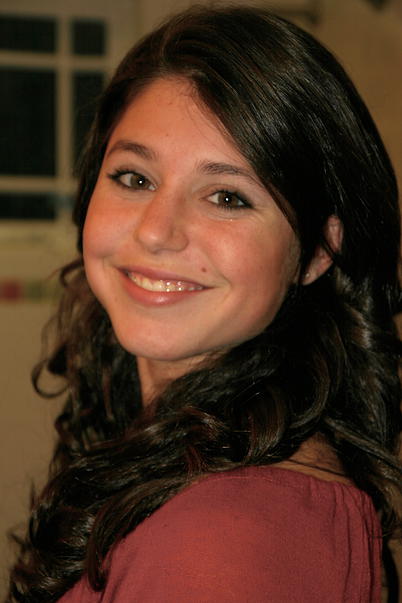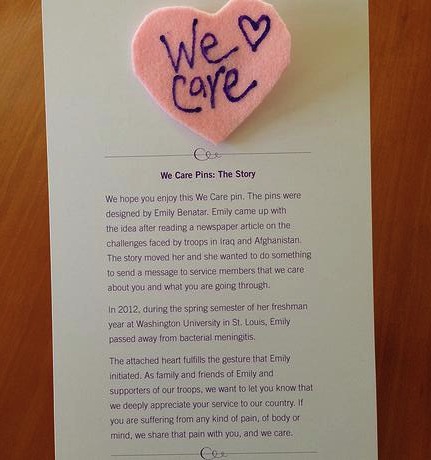A Palo Alto family recently launched the Own Your Health Info project, a campaign promoting the individual ownership of health and immunization records.
The family members of Emily Benatar, a Palo Alto High School Class of 2011 graduate who passed away in 2012 from bacterial meningitis, started the project in her honor. Own Your Health Info is a continuation of the annual Emily’s Way project, a program that the Benatar family initiated last year. Last year’s project involved creating cards for military personnel. Emily’s mother and creator of Own Your Health Info, Lisa Benatar, noted that the aim of the project is to encourage individuals to advocate for their own health awareness. The goal is to get 1,100 people, including Paly students, to have their medical records available on their phones by Feb. 11, to honor Emily’s birthday. “We want to help people help themselves and be their own best advocate,” Lisa Benatar said.

The process by which students and adults can achieve mobile access to health records varies, according to Lisa Benatar. Individuals with physicians affiliated with Stanford Hospital, Palo Alto Medical Foundation or Kaiser Permanente can go online to learn about digital health records and how set up an account. Teens can also set up an account during an appointment with a physician.
“The quickest and easiest way to set up an online account is while you are actually at the doctor’s office — they will help you set up the account right on the spot,” Lisa Benatar said. “The problem is, many teens only go to the doctor every couple of years.”
In order to streamline this process and make it more accessible to teenagers, Lisa Benatar created a simple “FastTrak” solution that she hopes will encourage teenagers to gain a greater understanding of their own health.
“All we want students to do is this: Ask your parents to text you a picture of your immunization records,” Lisa Benatar said. “That’s it.”
Once students have access to their health records on their phone, whether it’s through an online account or an image sent by their parents, Benatar encourages them to contact the Own Your Health Info organization via email and add their name to help reach the 1,100 goal. Students can also join the campaign by registering online.
The idea for the Own Your Health project, according to Lisa Benatar, stemmed from her desire to spread awarness about the meningococcal disease.
“I wanted to raise awareness about the disease, but I couldn’t even tell people to get vaccinated because at the time when I first started thinking about this project, there was no [meningococcal B] vaccine available in the U.S,” Lisa Benatar said.
According to Lisa Benatar, Emily was vaccinated but contracted a strain of the meningococcal disease that was not covered by the vaccination.
“[Emily] contracted serogroup B, which is not covered by the vaccine that was the only one available at the time when she was vaccinated,” Lisa Benatar said. “Just within the last three months, the FDA has approved two MenB vaccines.”

After learning more about the disease and vaccinations, Lisa Benatar hoped that the “Own Your Health” campaign would help lead to a wider-scale understanding of immunizations and medical history.
“At least I could help people with the first step in understanding vaccinations, which is to at least know which ones you’ve had and when,” Lisa Benatar said. “That’s how the idea of ‘owning your health information’ came about.”
Emily’s sister junior Maya Benatar is one of over 800 people who have added their names to the Own Your Health Info Campaign.
“I think this is super important because the transition from high school to college is a tough one and a lot of the time teenagers still rely on their parents for a lot of stuff,” Maya Benatar said. “When teenagers go to the doctor in college and are sick they usually don’t know certain information about their health in the past that the doctor might need to diagnose them or prescribe them medication.”
With the project, Lisa Benatar hopes to encourage college students to take their health matters into their own hands. The project is designed to help people, young adults in particular, understand their own medical history and have access to their records at all times.
“When kids turn 18, it makes sense for them to take on the responsibility of keeping track of their health records because at that point, their parents no longer even have legal access to the records,” Lisa Benatar said. “If you’re away from home and have some kind of medical emergency, like a sports injury or any kind of accident or illness, you might need to know things quickly, like what medicines you’re allergic to.”
Lisa Benatar also hopes that the project will encourage parents to play a greater role in helping their children to understand health care.
“Parents can help by showing their kids what’s involved in healthcare, like finding a doctor … and getting access to records,” Lisa Benatar said. “As one friend of mine put it, when kids go off to college we spend more time picking out bedding than we we do helping them take care of health information.”

